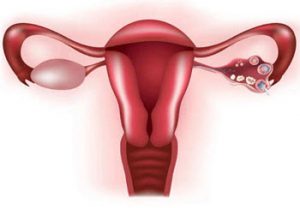Premature ovarian failure (POF) is the loss of normal ovarian function before the normal age for menopause. POF affects roughly 1 in 100 women before the age of 40.
Reasons
Examples of reasons behind POF:
- Chromosome abnormalities, such as Down’s syndrome
- Autoimmune disease
- Enzyme deficiency
- Infections, such as tuberculosis, malaria, chickenpox and mumps
- Radiotherapy
- Chemotherapy
- Surgery, e.g. hysterectomy or surgery that removes both ovaries
In many cases, it is not possible to pinpoint the exact reason behind the premature ovarian failure.
Harvesting eggs before radiotherapy & chemotherapy
If a girl or pre-menopausal woman is to receive radiotherapy or chemotherapy, it can be advisable to remove eggs from her as a precaution and freeze them for possible later use.
Girl’s who haven’t reached puberty yet can usually tolerate stronger radiotherapy and chemotherapy without losing fertility. Girls and women who have reached puberty are more sensitive.
Health risks associated with premature menopause
After menopaus, a woman’s oestrogen levels will be lower which increases the risk of osteoporosis. A woman who goes through early menopaus can be prescribed hormone replacement therapy to decrease her risk of early osteoporosis. The hormone replacement therapy will typically continue until she is around 50 years old. Another option is to use hormonal birth control pills to balance oestrogen levels.
Since osteoporosis is linked to calcium deficiency, calcium supplements can be prescribed.
Scans can be carried out regularly to monitor the bone quality of the woman.
Fertility treatments
Some women who have lost normal ovarian function can still get pregnant through IVF using donor eggs.
